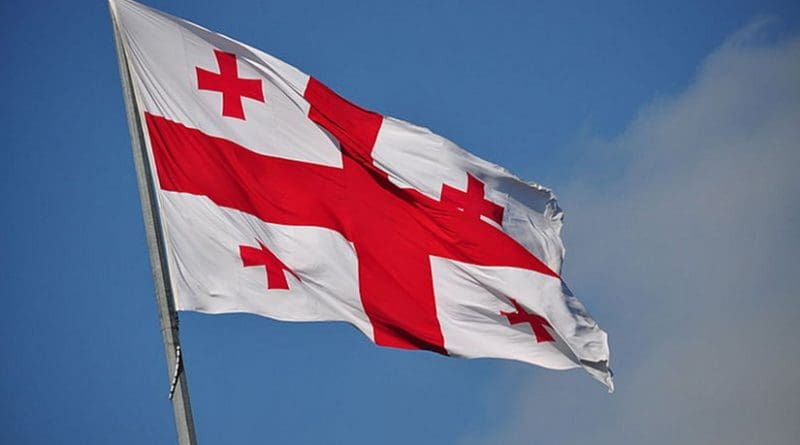Tbilisi’s Kosovo Solution – OpEd
The parallels that exist, or don’t exist, between the fractured politics in the Caucasus and namesake of geopolitical fission, the Balkans, has been a subject of great conversation and debate for years.
Unsurprisingly, the level and rancor of such discussions elevated dramatically after NATO forces ejected Serbian troops from Kosovo in 1999 and essentially created a de facto separate statelet out of the ethnic-Albanian enclave.
This militarily-arbitrated reality was notarized and countersigned in February 2008, when the government of Kosovo unilaterally declared independence from Serbia, and has since won recognition from 71 UN states, including a large majority of EU and NATO members.
The debate ratcheted up again during and immediately following the August 2008 war, in which Moscow wielded the ‘Kosovo precedent’ to consolidate its presence in the Georgian separatist regions and recognized their independence shortly thereafter, although few countries have followed its lead.
The relationship between the situations in the Caucasus and the Balkans is undeniable, even if one believes that the context of Kosovo’s independence and Abkhazia/South Ossetia’s differ considerably. Either way, they are inexorably linked by the mere fact that foreign policy observers and policymakers find the need to cite or dismiss the other case to support their arguments for and against the transferability of the other.
Traditionally, the linkages between the Caucasus and the Balkans have been the circumstances of their messy breakups, the picturesque ancientness of their constituent civilizations, and the general impossibility of their diversity of languages. But the idea that these ties that bind to two regions could be harnessed in the pursuit of conflict resolution has not been discussed at any great length.
There are many reasons for this, but the most compelling belief is that the controversial backgrounds of each region’s situation would open more wounds than it would heal. This has a real logic to it; Kosovars by now have little patience for arguments against their statehood by continued
international recognition of Abkhazia and South Ossetia as parts of Georgia, while Georgians are not at all keen to listen to Russian legal scholars point out the inconsistencies between the Kosovo case and the West’s unanimous support for Tbilisi’s territorial claims. If one believes that these cases are sufficiently distinctive, it stands to reason that their relevance in each other’s context is limited at best, and explosively controversial at least.
But when rearranging the pieces of this formula somewhat, a surprising alignment of interests emerge. Georgia, it seems, may be uniquely well-placed to take an active role in mediating the ongoing, fierce disagreements between Belgrade and Pristina, especially over the issue of ethnic-Serb minority populations in Kosovo.
For the Kosovars, Georgia is an interesting friend. Although Tbilisi has yet to recognize its independence – and appears to have no plans to do so – Georgia was an active contributor to the NATO-led KFOR peacekeeping operations in Kosovo on the early 2000s. Georgia’s closeness to Turkey also gives it an extra boost of credibility, given the reemerging ties between the Balkan Muslim populations and their historic patrons in Istanbul. And Georgia’s hearty relationship with Washington (and their shared suspicions of Moscow) should also soothe fears that Tbilisi would be
keen to sell them out. After all, despite Georgia’s non-recognition, it has always maintained that the context of the Abkhazia/South Ossetia case is dramatically different.
The Serbs, for their part, can find comfort in Tbilisi’s continued non-recognition of Kosovo. And despite Belgrade’s closeness to Moscow, Serbian policymakers are well aware that a Tbilisi-brokered agreement would take extra special care not to push international opinion in such a way that it jeopardizes its own territorial claims over Abkhazia and South Ossetia. The shared Christian Orthodox faith between the Serbians and the Georgians is also of not minor importance, as Belgrade has balked at the idea of mediation from their erstwhile Muslim suzerains in Ankara. And though their friends in Russia may not like it, Belgrade may recognize that they are unlikely to find a more universally acceptable option, given the way the Kosovo decision has split international passions.
For Georgia, the opportunity is clear: making a significant contribution to the European security architecture might be just the bump they need to get a second look from skeptical NATO members.
Since the beginning of the decade, Georgia has tried to establish itself as a net contributor to regional security, though much of its gains were dashed after its war with Russia. Paired with a more cautious posture towards Moscow, assisting in resolving Europe’s most glaring outstanding security issue could serve as a major feather in Tbilisi’s cap. Meanwhile, the goodwill generated from a breakthrough could be enough to moderate the acrimony that persists between Georgia and Russia.
Of course, nothing is sure. What could be interpreted as a middle ground solution could also be seen by some as a zero-percent solution – too many caveats all around. And naturally, there is no guarantee of success either, as the problem’s intractability has become something of its own cottage
industry. But the potential benefits are enormous, and justify at least some real consideration from Tbilisi leadership.

